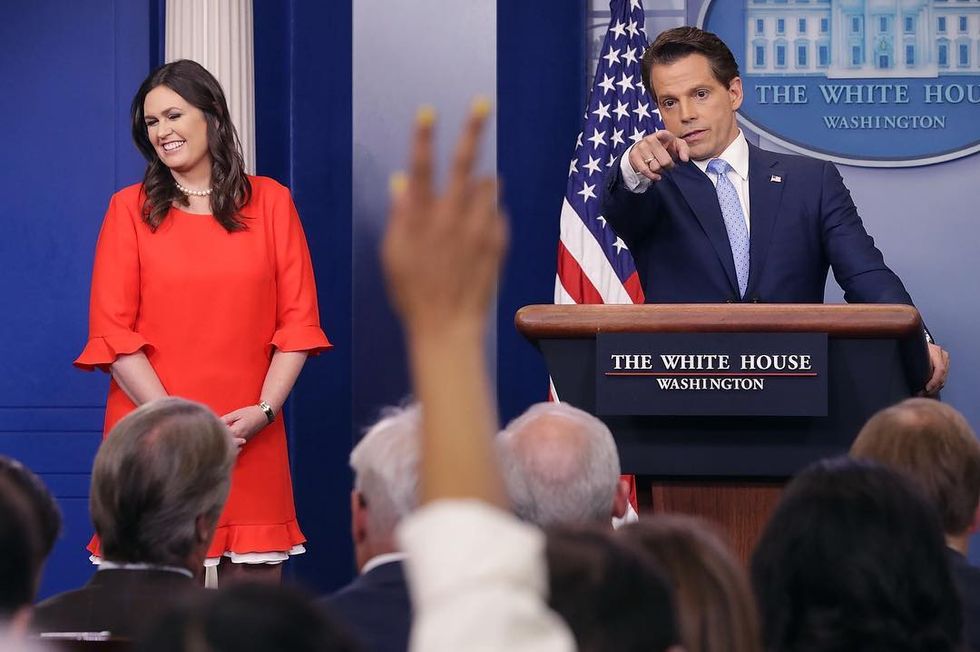Talking politics can be quite an uncomfortable thing to do. Understandably, I can see why. These political discussions usually turn out to be heated, very isolating, and a cause of major conflict with neither party happy discussing these topics at all. After all, they always say to never talk religion or politics in polite company. Although I would argue that I think politics are worth discussing. Not in the type of manner where it is an opinion only based argument with hurling insults, but instead one that is intellectually stimulating. We need to have these talks in order to communicate efficiently in what is best for our society and the possible solutions to current problems we may have. And most importantly in being able to get along with those who differ from you politically.
A discussion worth having is one where both people from opposite parties can explain what they believe using facts/statistics, their own personal values/norms/morals, and the ability to understand where the other is coming from in a respectful manner.
First and foremost, let me say that you should know what you are talking about. Okay, that sounds harsh but what I mean is try making educated points instead of spreading propaganda. You should take the time out to know what exactly you are standing for. For good reason this will help you in explaining your point of view (regardless of what side you are on). Using your resources (at your fingertips) should be necessary to you in this day and age, so no excuses not to use them wisely! After being correctly informed, you can then evaluate values...
Everyone has their own opinions on certain political topics but what we need is to get to the bottom of how they have formed their beliefs. What evidence do they have to stand by the stance they hold on a particular issue? What in their own lives causes them to represent certain characteristics the Democrats or Republicans stand for? Simply put, not everyone is going to value the same things. There may be similar aspects to which they value but the degree to which they value it can differ. It does not mean they do not think immigration, healthcare, or taxes are important or unimportant just that the issues are viewed in different ways. They simply might just prioritize different values over the ones you may cherish on the top of your list.
The absolute worst thing you can do is shut down someone because they have different beliefs than you do. Since they simply might just prioritize different values over the ones you may cherish, we need that understanding.
Understand what your values are in respect to what the other person's values are.
We need to look through the different lens of individuals. What I mean by this is we need to see other perspectives other than our own. We can be quick to stereotype or start name-calling others, but what are you actually accomplishing by doing that? We can still discuss our concerns and issues civilly without having to be enemies. In most cases, you will find the experience rather eye-opening. You could take away something you never thought about before by talking with someone with opposing views.
A big lesson I have learned about this was during the past 2016 presidential election. Not only did I delete people on social media, but was also deleted myself. I did not realize it then because, again, out of a heated debate, it is frustrating to talk and understand the other person. But it turns out it isn't a solution; communication is vital. By having mature political discourse, again, I guarantee that you will learn something new from one another. If I am open to listening to your side, you should be willing to listen to my side. You may be even surprised that over time the Republican party and Democratic party actually have overlapped in different policy ideas we see in policies today. Having respectful conversation and debate is actually beneficial.
I think the greatest division in politics is not the politics and parties themselves, but the inaction of not discussing and learning from one another.
It might be too good to be true but wouldn't it be relieving to have some bipartisan cooperation from parties working together? What is the worst that can happen? At the end of the day you hold your own political beliefs and they hold theirs, sometimes all you can do is agree to disagree. Equal educational knowledge can at least help bring us together. That is why I argue discussing politics isn't always a bad thing, but sometimes a much needed necessity.




















 sunrise
StableDiffusion
sunrise
StableDiffusion
 bonfire friends
StableDiffusion
bonfire friends
StableDiffusion
 sadness
StableDiffusion
sadness
StableDiffusion

 purple skies
StableDiffusion
purple skies
StableDiffusion

 true love
StableDiffusion
true love
StableDiffusion
 My Cheerleader
StableDiffusion
My Cheerleader
StableDiffusion
 womans transformation to happiness and love
StableDiffusion
womans transformation to happiness and love
StableDiffusion
 future life together of adventures
StableDiffusion
future life together of adventures
StableDiffusion





















